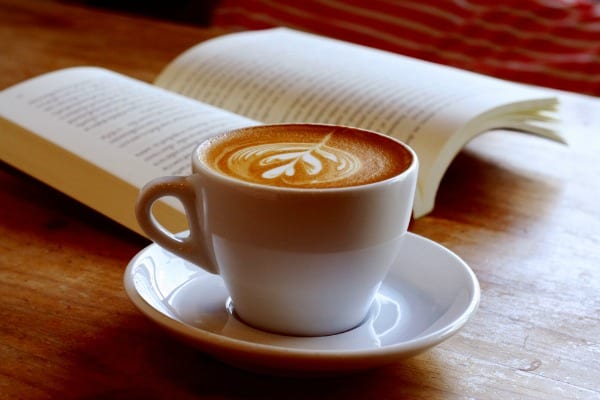Should a book cost more than a coffee?
Should a book cost more than a coffee?
Should a book cost more than a coffee?
-
Hannah
-
Hannah


Depending on where you are in the world, a café latte from a chain like Starbucks is likely to cost you in the region of £3/$4. Wherever you are in the world, you can absolutely buy all kinds of books for less than that.
Cheap books are available in various formats and from various sellers:
* Second-hand books sold offline and online
* Discounted books sold in deals at major retailers such as supermarkets
* Heavily discounted books sold by book clubs and discount outlets
* Heavily discounted ebooks (sold for far less than the print-book price)
These cheap deals are excellent news for readers. They can be good news for authors too, in the sense that any sale of a book means they have reached a reader. However, in terms of the author earning what they deserve for their creative work, so-called ‘bargain books’ can be bad news.
In the UK, the Society of Authors is currently running a campaign called ‘Fair Reading’, which aims to ‘ensure that a good deal for the reader is also a fair deal for the author’ (see http://www.societyofauthors.org/Where-We-Stand/Fair-reading). The campaign is focusing on high discounting of books.
Did you know that Amazon is changing the way it sells books? It has always been the case that if you buy a book on Amazon, you are sold a book stocked by Amazon – so Amazon pays the publisher for that book, who in turn pays the author a royalty. In the US, however (and in the UK soon), pressing that ‘buy’ button on Amazon may well mean you are not buying a book supplied to Amazon by the publisher, but a book from a third-party supplier.
The book is second-hand and heavily discounted (often to a mere penny or cent!). Second-hand does not necessarily mean used, though; it can be new and unread. Publishers often print two versions of a book: the quality one intended for sale in bookshops (for which the author earns a decent royalty per sale), and a cheaper run that is not intended for regular buyers but for heavily discounted sales like those via book clubs (for which the author earns but a penny or two per sale). According to the Guardian, ‘it is believed that large quantities are being dumped on the mainstream market to be sold as if they are secondhand – which would explain how paperback editions appear for sale long before they are available to bookshops’ (http://www.theguardian.com/books/booksblog/2017/may/17/secondhand-book-sales-authors-cheap).
The major issue here is the bottom line for the author. An author earns around seven to ten per cent of a standard sale. But on these third-party sales, the author earns nothing. So when you click ‘buy’ on an Amazon page to purchase a book, you are not supporting the author at all.
This is just one of several book-pricing issues that exist in publishing, another obvious one being ebook pricing. It is the underlying principle here that most interests me: how much should a book be worth?
The book/coffee price comparison is becoming a common one. On the Society of Authors blog (http://www.societyofauthors.org/News/Blogs/James-Mayhew/November-2016/James-Mayhew-Fair-Trade-for-Authors), James Mayhew writes: ‘for the people who can afford £3 on a daily latte or magazine, or who happily spend £6 for a cinema ticket, should books be just £1? This is about far more than my personal return on sales. It is about the symbolic devaluing of books.’
I agree entirely, and I ask:
* How much more easily do we buy a coffee than a book – and how much more quickly do we consume it?
* How many coffees do we buy per year versus books?
* Do we scruitinise the cost of a book more than the cost of a coffee?
* Does a few pounds or dollars feel perfectly reasonable for some hot milk, water and coffee beans, and yet not so reasonable for hundreds of bound (or electronic) pages on which are words formed by many, many hours of work, and so much dedication, skill and artistry?
* Should, in fact, a book cost more than a coffee?